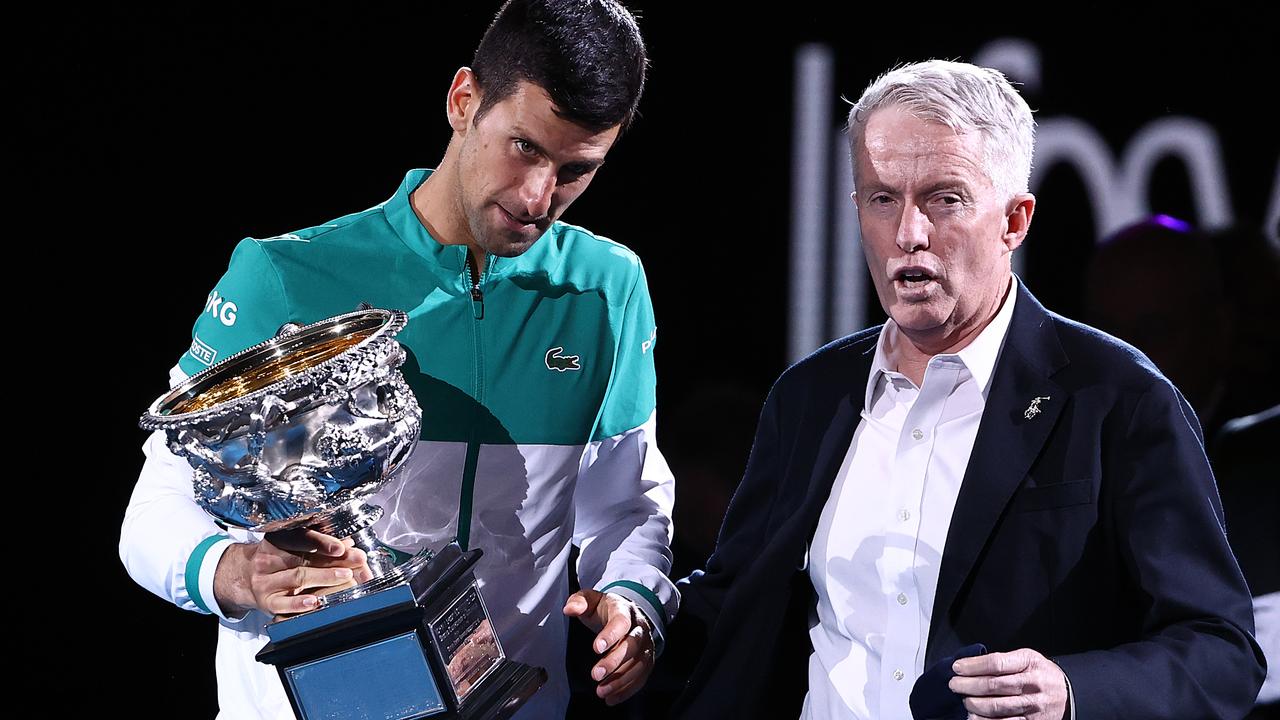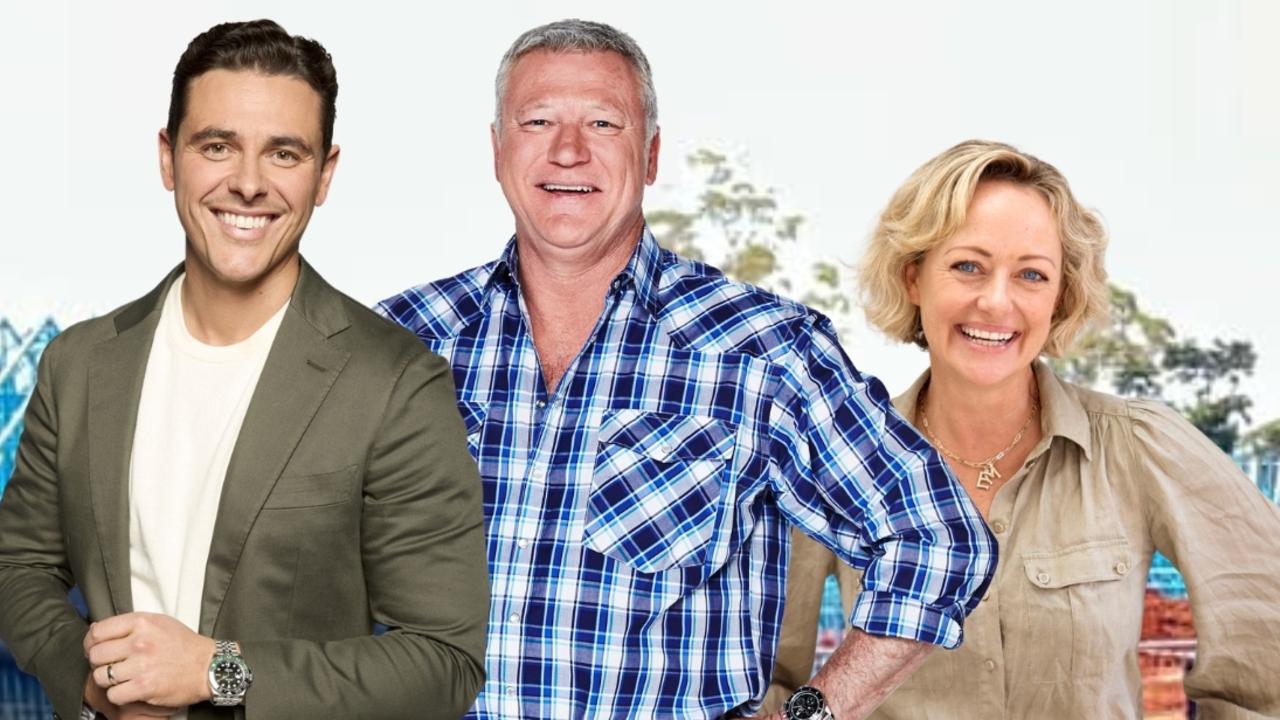How a wife donated her kidney to a stranger to save her husband’s life in new exchange program
When her husband needed a new kidney, Karen Jones-Pidgley donated hers to a stranger so she could save his life.
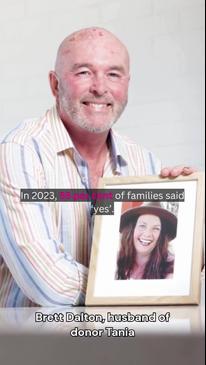
Victoria
Don't miss out on the headlines from Victoria. Followed categories will be added to My News.
It is a question education professional Chris Jones-Pidgely has pondered in recent weeks: how to thank his wife for donating a kidney to a stranger so that he could receive a lifesaving one in return.
Mr Jones-Pidgely, 36, says he is “still blown away” that wife Karen has given part of herself up for him.
“I’m just incredibly grateful,” he said. “I know I’ll never be able to repay her for this, but I don’t think she expects me to.”
Mrs Jones-Pidgely, 35, says her decision to be a living kidney donor was “a no-brainer”.
“We really didn’t want Chris to be on dialysis when we have two young boys, and because we are immigrants here we don’t really have family support,” she said.
“I think after the surgery it hit me just how privileged a position I was in that I’ve been able to help someone else and help their family.”
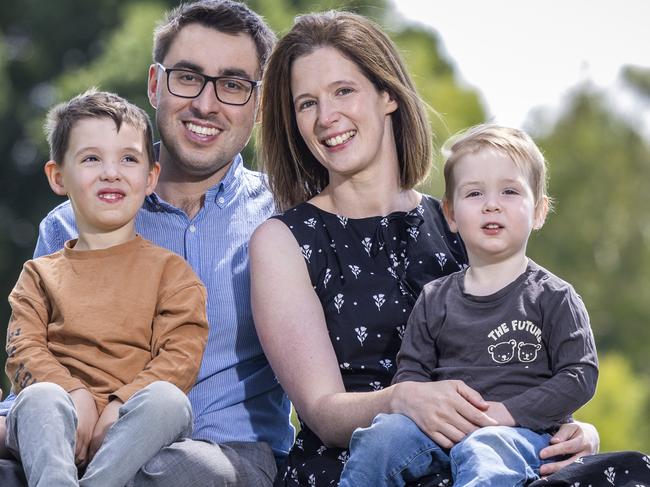
Early last year, the couple joined the Australia and New Zealand Paired Kidney Exchange (ANZKX) program when told Mr Jones-Pidgely’s kidneys were failing and he would need a transplant.
The program is funded by the Organ and Tissue Authority. It is based at the Royal Melbourne Hospital with the support of 24/7 logistics partner Australia Post through its StarTrack Next Flight service.
Now in its sixth year as a combined service, the trans-Tasman collaboration is helping to increase the number of living kidney donations.
The program works by matching incompatible donor and recipient pairs like the Jones-Pidgelys with other incompatible pairs across Australia and New Zealand.
They then “exchange” kidneys with strangers who, because of privacy laws, they will never meet.
“Give a kidney to get a kidney,” Mrs Jones-Pidgely says of the program that saved her husband.
The couple underwent surgery on the same day several weeks ago and are now well on the road to recovery.
Mrs Jones-Pidgely’s parents came from Northern Ireland to care for their sons Thomas, 4, and Alexander, 2.
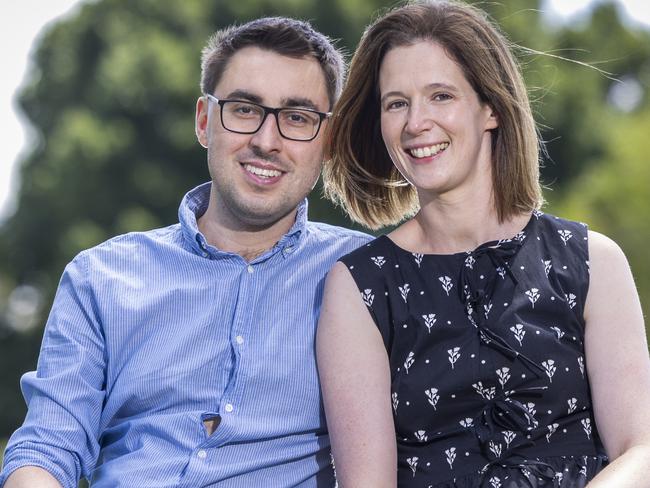
She said the family was also grateful that the teaching agency where she works continued to pay her salary.
“The agency chose to be part of the Supporting Living Donor Program that workplaces can join,” Mrs Jones-Pidgely said. “As a casual relief teacher I didn’t qualify for sick leave so it made all the difference.”
Mr Jones-Pidgely said he knew as a teenager that his kidney function had been impacted following several bouts of tonsillitis in a year.
At 19, a blood test showed he only had 20 per cent kidney function and while doctors couldn’t pinpoint the cause, they suspected it may have been the result of the recurrent infections.
His kidney function improved and remained stable, but in early 2024, Mr Jones-Pidgely was warned it was again declining and he would need a transplant and likely dialysis – the mechanical removal of impurities from the blood – while waiting for a donor.
Although Mrs Jones-Pidgely offered to be a living donor for her husband, she was not a perfect tissue match.
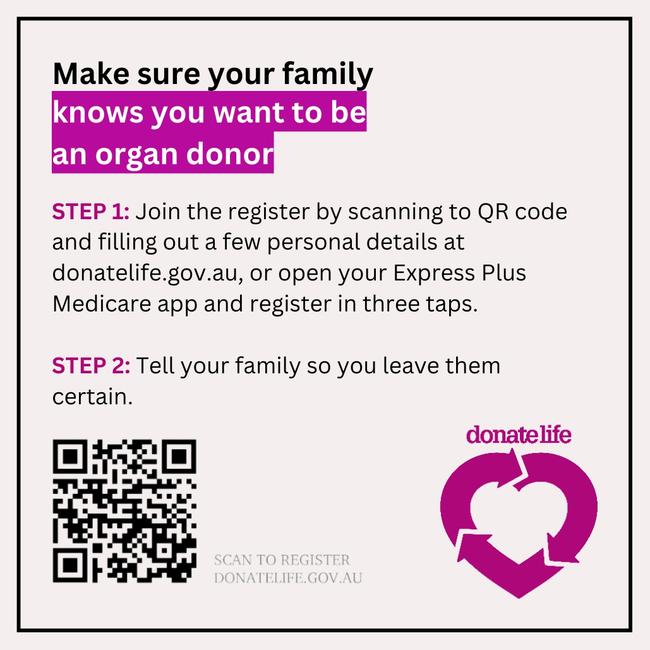
Mrs Jones-Pidgely said donating a kidney to a stranger in return for her husband receiving one was an easy decision to make.
“The overall advantage to us having Chris healthy far surpassed anything else,” she said.
The transplant has been life changing for the family.
“My kidney function is now 90 per cent plus so this has made a really tremendous difference in how I’m feeling and what I can do,” Mr Jones-Pidgely said.
His wife says it is back to normal life and the general chaos of family.
“We feel so lucky.”
For more information visit DonateLife. All Australians aged 16-plus can and are encouraged to register as organ donors via donatelife.gov.au or the Express Plus Medicare app.
More Coverage
Originally published as How a wife donated her kidney to a stranger to save her husband’s life in new exchange program



